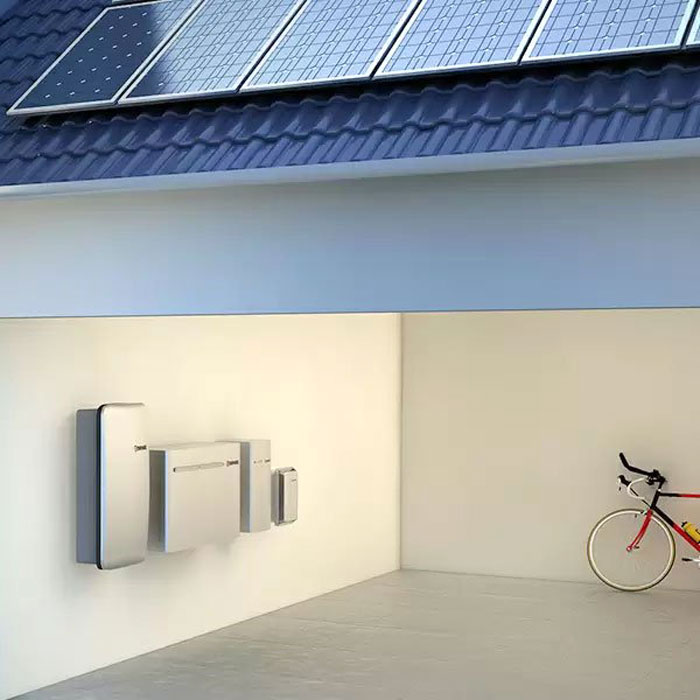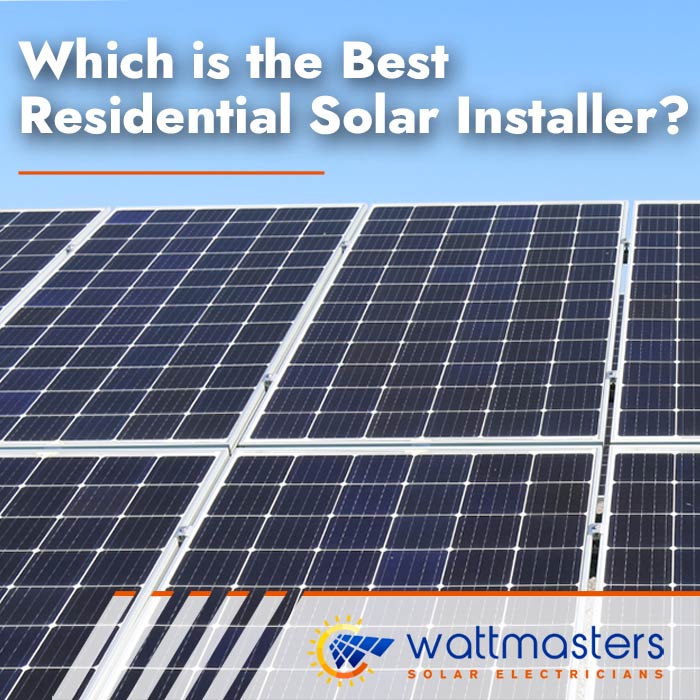Choosing a residential solar installer can be a difficult process. But with this guide, you'll learn how to choose the best one for your needs.
Get started by learning about factors such as customer service, safety standards, and pricing.

Which Residential Solar Installer is Best?
Choosing the right team to install your home solar panels is a big deal, and you’ll want to make sure you pick the best fit for your needs. Here’s what to think about when making your choice:
- Cost: You’ve heard it before – you often get what you pay for. It’s key to compare prices and understand exactly what’s included in the deal. This ensures you’re not caught off guard by unexpected costs.
- Experience: Opt for an installer with a solid track record of putting in residential solar panels. More experience means they’re more likely to smoothly navigate any hiccups along the way. For instance, Watt Masters has successfully installed over 50,000 panels, highlighting their extensive experience.
- Reputation: Spend some time looking into what others have to say about the installer. A good reputation with customers and respect from other professionals in the field are strong indicators of reliability and quality service.
- Technical Assistance: Make sure to ask if the installer offers support for any questions or issues you might encounter post-installation. It’s comforting to know you have expert help on standby if you need it.
What to Think About Before Picking a Solar Panel Guy for Your Home
When you’re ready to take the leap into solar power for your home, there are some critical points to ponder to ensure you get the best setup for your needs. Keep these factors in mind:
- Experience and Certification: Look for installers who have a wealth of experience under their belts and hold certifications from well-regarded bodies. These credentials are a testament to their skills and knowledge in the field.
- Licensed Solar Installers: Remember, not all installers are the same. Their pricing can differ based on their level of experience, the credentials they hold, and the scope and complexity of the installation work they’re undertaking.
- Customer Service: Opt for an installer known for excellent customer service. Should any issues arise during the installation, you’ll want a company with a solid reputation for addressing and resolving problems swiftly and efficiently.
- Warranty: Pay close attention to the warranty terms offered by different installers. Warranties can vary widely, with some providing lifetime coverage and others offering more limited terms. Understanding these details upfront can save you headaches later on.
What are the Benefits of a Licensed Residential Solar Installer?
When you’re looking to install solar panels on your home, you have a few different choices for who to hire. You can go it alone and do the research yourself, or you can hire a professional installer. Here are some of the benefits of using a residential solar installer:
- They have years of experience installing panels on homes.
- They are held to strict high standards and inspections to ensure a safe, high-performing installation.
- They have the knowledge and tools necessary to do a quality job.
- They have the resources and connections to get you the best prices for your solar installation.
- They will work with you throughout the entire process, from quoting your project to after installation.
Common Questions about Residential Solar Installation
1. How much do residential solar installers cost?
There is no one-size-fits-all answer to this question, as the fee rates for residential solar installation will vary depending on the experience and qualifications of the installer. However, some reputable residential solar installers typically charge between $3,000 and $5,000 for a basic installation job. More complex projects may require a fee upwards of $10,000.
2. What kind of materials will I need to have installed onto my roof?
Some common materials required for a residential solar installation include solar panels, mounting brackets, wire ties, screws, and thermal insulation. Depending on the location of your home and the type of roofing material used, you may also need a permit or a roofing contractor to complete the installation.
3. What is included in a basic residential solar installation?
A basic residential solar installation typically includes installing solar panels onto your roof, connecting them to an inverter/charger, and then wiring them into your home’s electrical system. In some cases, additional work may be required to connect the panels to your home’s electricity supply or to mount them
4. How Much Does a Residential Solar Installer Cost?
A residential solar installer can cost anywhere from $5,000 to $20,000 or more. Prices will vary depending on experience and equipment used. It is important to find a reputable installer who has the latest and greatest technology and equipment.
Contents
- 1 Which Residential Solar Installer is Best?
- 2 What to Think About Before Picking a Solar Panel Guy for Your Home
- 3 What are the Benefits of a Licensed Residential Solar Installer?
- 3.1 Common Questions about Residential Solar Installation
- 3.2 1. How much do residential solar installers cost?
- 3.3 2. What kind of materials will I need to have installed onto my roof?
- 3.4 3. What is included in a basic residential solar installation?
- 3.5 4. How Much Does a Residential Solar Installer Cost?
- 4 Say goodbye to expensive electric bills with $0 down solar from Watt Masters

